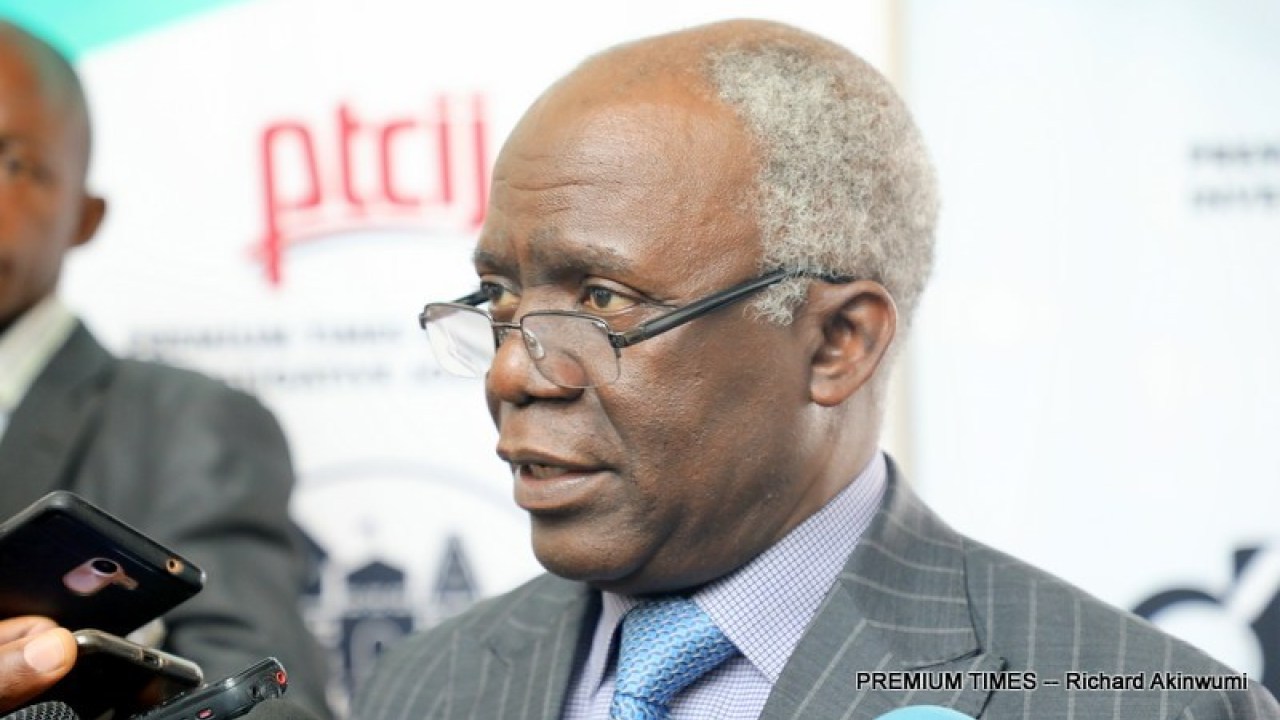ABUJA, Nigeria — The Alliance on Surviving COVID-19 and Beyond (ASCAB), a coalition of 70 labour and civil society organisations, has called on Nigeria’s anti-corruption agencies to investigate the alleged diversion of a $3.4 billion emergency loan secured from the International Monetary Fund (IMF) in 2020 to combat the economic fallout of the COVID-19 pandemic.
In a statement issued on Sunday, May 11, 2025, and signed by human rights lawyer and ASCAB chairperson Femi Falana, the coalition urged the Economic and Financial Crimes Commission (EFCC) and the Independent Corrupt Practices and Other Related Offences Commission (ICPC) to launch an immediate investigation.
“ASCAB hereby calls on the Economic and Financial Crimes Commission and the Independent Corrupt Practices and Other Related Offences Commission to investigate the criminal diversion of the $3.4 billion loan obtained by Nigeria to fight the COVID-19 pandemic,” the statement read.
The IMF had disbursed the loan to Nigeria on April 28, 2020, to stabilise the country’s healthcare sector and protect jobs and businesses.
But a 2020 audit report from the Office of the Auditor-General of the Federation, made public in January 2024, flagged several alleged irregularities in the use and classification of the funds.
According to ASCAB, the report showed that $2.4 billion of the IMF loan was transferred to the Central Bank of Nigeria’s (CBN) account at the Federal Reserve Bank of New York, while the remaining funds were sent to the CBN’s account at the Bank of China in Shanghai.
The funds were later moved to the Bank for International Settlements (BIS) and the Industrial and Commercial Bank of China (ICBC) for short-term investments.
ASCAB said these transactions lacked documentation or approval from the Federal Government or the CBN’s Investment Committee and were later reclassified as part of the CBN’s external reserves rather than Federal Government property — a move that allowed interest to be earned on funds earmarked for emergency spending.
The group also cited the monetisation of $700 million in August 2020, when the Ministry of Finance requested support for the national budget.
The CBN approved a debit of N265.65 billion using an exchange rate higher than the official rate at the time, allocating the funds across several accounts.
“The audit noted that a 2% commission was deducted from the monetised amount, even though the funds were categorised as Federal Government property,” ASCAB said.
It added that by the end of 2020, an unmonetised balance of $2.7 billion — approximately N1.02 trillion — remained unaccounted for.
The Auditor-General’s report, according to ASCAB, demanded an explanation from the CBN Governor on the movement and classification of the funds and requested relevant bank statements.
It also recommended the recovery of N13.3 billion and N350 million into the government’s account, along with the remittance of all interest earned.
The coalition further called on the IMF Board to suspend all related charges on the loan — amounting to Special Drawing Rights (SDR) 125.99 million or N275.28 billion — until a full investigation is concluded.
In a sharp rebuke of Nigeria’s legislature, ASCAB criticised the National Assembly for failing to act on the audit report submitted in line with constitutional requirements.
The group said the failure of both the Senate and the House of Representatives to review the report through their public accounts committees contravened Section 85(5) of the 1999 Constitution.
“This inaction has not only hidden the alleged misuse of the $3.4 billion IMF loan but also allowed trillions of naira flagged in the audit report to go unexamined,” the statement said.
The IMF announced last week that Nigeria is now paying $30 million annually in SDR charges for the loan, further fuelling concerns over the transparency and oversight of international financial support received during the pandemic.
Neither the Central Bank of Nigeria nor the Ministry of Finance has responded to the allegations raised in the Auditor-General’s report or ASCAB’s statement.







